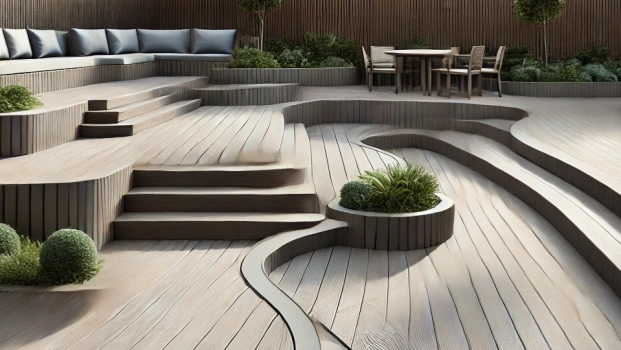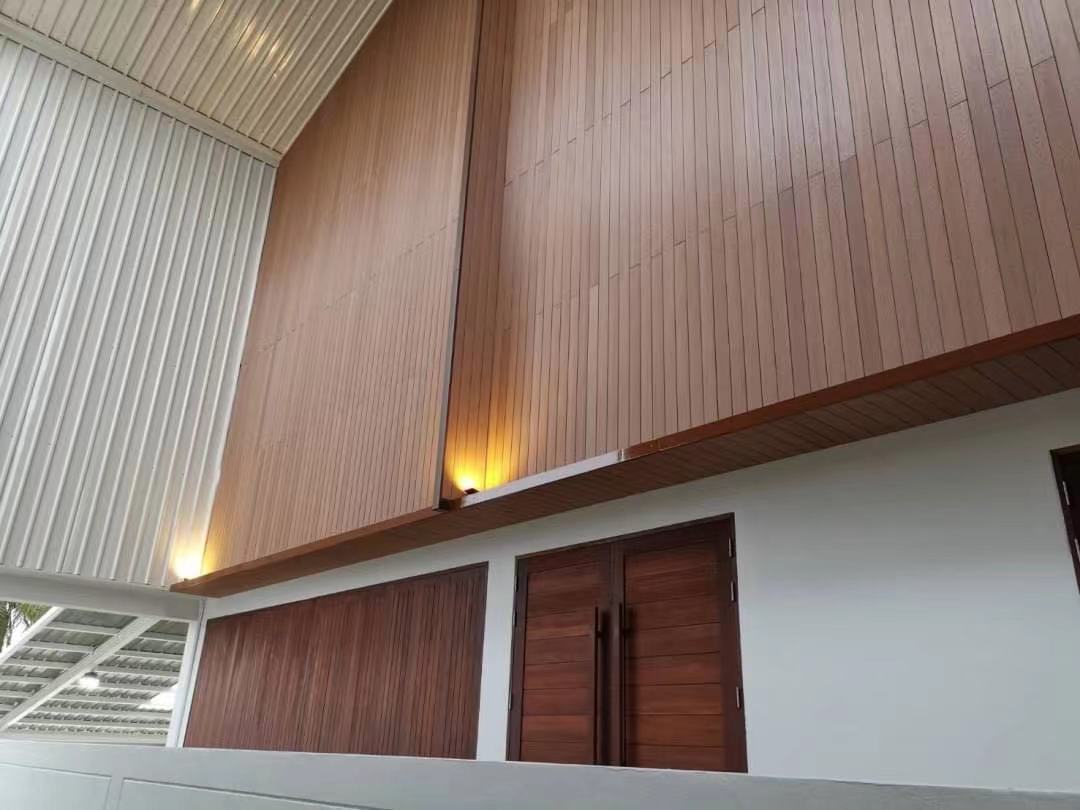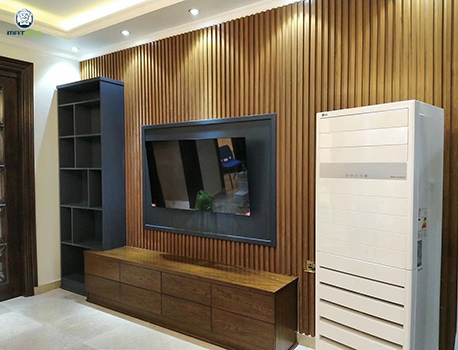Wall Panel vs Paint
Both wall panels and paint have their own set of advantages. Wall panels are known for their textural appeal and durability, while paint offers versatility and ease of application. Each has distinct qualities that make them ideal for different purposes, rooms, and design preferences. Wall panels and paint are two of the most popular options for interior wall finishes. But how do you decide between them?
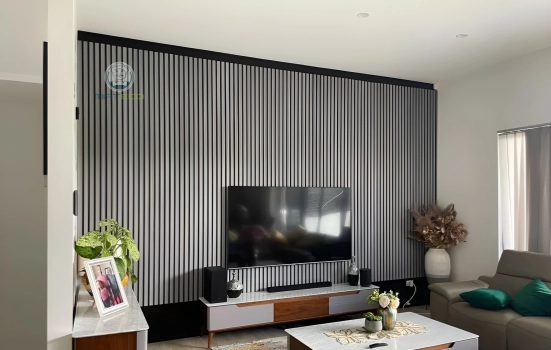
Table of Contents
Functionality & Environment Suitability: Where to Use Wall Panels and Paint
Factors to Consider When Choosing Between Wall Panels and Paint
Aesthetic Appeal: Wall Panels vs Paint
Wall Panels: Textured, Patterned, and Versatile Designs
Wall panels are a powerful way to add texture, pattern, and dimension to your space. Whether it's the natural warmth of wood, the sleek look of metal, or the contemporary feel of PVC, panels provide a tactile, sophisticated finish that paint cannot replicate.
Paint: Smooth, Customizable, and Color-Flexible Finishes
Paint offers a smoother, more uniform look and is ideal for achieving specific color schemes. Whether you choose a matte, satin, or gloss finish, paint allows you to transform the entire mood of a room with just a few coats. Plus, the possibilities for color are endless, providing you with ultimate flexibility.
Durability & Maintenance: Which Lasts Longer?
Wall Panels: Impact-Resistant, Long-Lasting, and Easy to Maintain
One of the standout features of wall panels is their durability. Made from materials such as wood, vinyl, or stone, they can withstand the daily wear and tear of high-traffic areas. Paneling also hides imperfections better and can be cleaned with minimal effort.
Paint: Prone to Wear and Tear, Requiring Frequent Touch-Ups
While paint is affordable, it often shows scuffs, stains, and wear more easily. High-traffic areas like hallways or kitchens may need frequent repainting to maintain a fresh look. That said, newer paint technologies, such as scratch-resistant or washable paints, have improved durability.
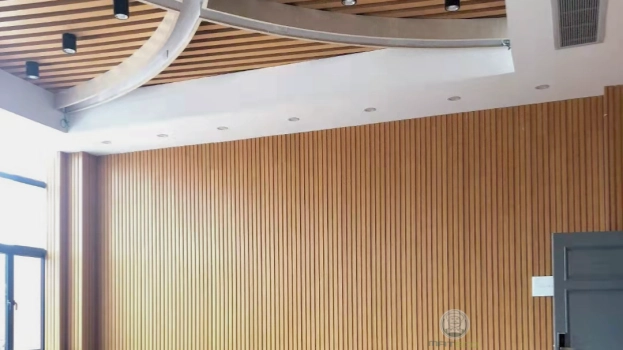
Cost Considerations: Budgeting for Wall Panels vs Paint
Wall Panels: Higher Upfront Cost but Long-Term Savings
Wall panels are generally more expensive upfront, especially if you're using high-end materials like wood or stone and wood-plastic composite. Installation costs can add up, as professional help may be required. However, panels last longer and require less maintenance, making them a wise long-term investment.
Paint: Budget-Friendly Initial Investment but More Frequent Maintenance Expenses
Paint is a cost-effective option in the short term. A gallon of paint is much cheaper than a paneling system, and it’s also easy to apply yourself. However, the need for touch-ups and reapplications means that the overall cost of maintaining painted walls can accumulate over time.
Installation Process: DIY or Professional Help?
Wall panels: General wall panel installation requires professionals, is complex and time-consuming
Installing wall panels generally requires precision and expertise. Depending on the material, you may need to hire a professional to ensure flawless results. Panels are heavier and may require specific tools for installation, especially if you are dealing with intricate designs or natural wood. If you choose WPC wall panels, you can install them alone without complicated procedures.
Paint: DIY-Friendly and Quicker to Apply
On the other hand, painting is a more accessible project for DIYers. With some basic tools—like brushes, rollers, and painter’s tape—you can refresh your walls on your own. While applying multiple coats can be time-consuming, the process is typically much faster than installing panels.
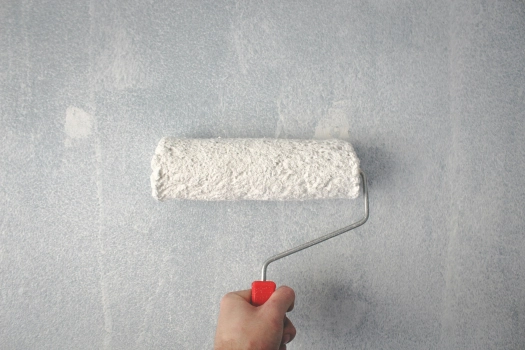
Functionality & Environment Suitability: Where to Use Wall Panels and Paint
Wall Panels: Best for High-Traffic, Humid, or Soundproofing-Required Areas
Wall panels are excellent for areas where durability and protection are essential, such as hallways, kitchens, bathrooms, and even basements. They also perform well in spaces requiring soundproofing or moisture resistance, like home theaters or laundry rooms.
Paint: Suitable for General Interior Spaces with Lower Environmental Demands
Paint is better suited for spaces that don’t experience heavy foot traffic or extreme conditions. Bedrooms, offices, and living rooms are often ideal candidates for paint, especially since it allows for easy customization of color and finish.
Factors to Consider When Choosing Between Wall Panels and Paint
Budget Constraints
While wall panels may seem expensive at first, they can save money in the long run due to their durability. Paint, although cheaper initially, will require more frequent upkeep, which could result in higher long-term costs.
Room Functionality
Think about the room’s purpose. Do you need a low-maintenance, long-lasting solution for a high-traffic space? Or are you redesigning a less-utilized room that you can update frequently with paint?
Desired Aesthetic
Your style preferences should also play a role. Wall panels add texture and a rich, natural feel, while paint offers smooth, customizable surfaces that work well with any style. If you're aiming for a modern, sleek look, paint might be your best bet, but if you're aiming for a bold, distinctive feature, wall panels might be the answer.
Long-Term Maintenance Commitment
Consider how much effort you're willing to put into upkeep. Wall panels are easier to maintain in the long run, while painted walls require regular attention to keep them looking fresh.
Common Myths and Misconceptions About Wall Panels and Paint
“Wall Panels Are Old-Fashioned”
While wood paneling may have had its heyday in the '70s, modern wall paneling comes in a variety of sleek, stylish materials that fit contemporary aesthetics. Today’s panels can be custom-designed for a fresh, bold look.
“Paint Is the Only Budget-Friendly Option”
Many believe that paint is the cheapest option, but when you factor in the cost of touch-ups, repainting, and time, it may not be as affordable as it seems. Wall panels can provide greater long-term value.
“Wall Panels Limit Design Choices”
Not true! Wall panels come in an array of textures, patterns, and materials. You can mix and match them to create intricate designs that paint alone can’t achieve.
Conclusion
Both wall panels and paint offer distinct advantages depending on your needs. Wall panels are a more durable, long-term investment with impressive aesthetic appeal, while paint provides flexibility, affordability, and ease of application.
Ultimately, your choice will depend on your budget, the function of the space, and the design you wish to achieve. Consider the long-term benefits and maintenance needs when making your decision.
If you are looking for a WPC manufacturer, MATECO will be your best choice.
WhatsApp: +86-13380085620
Email: info@matecowpc.com





